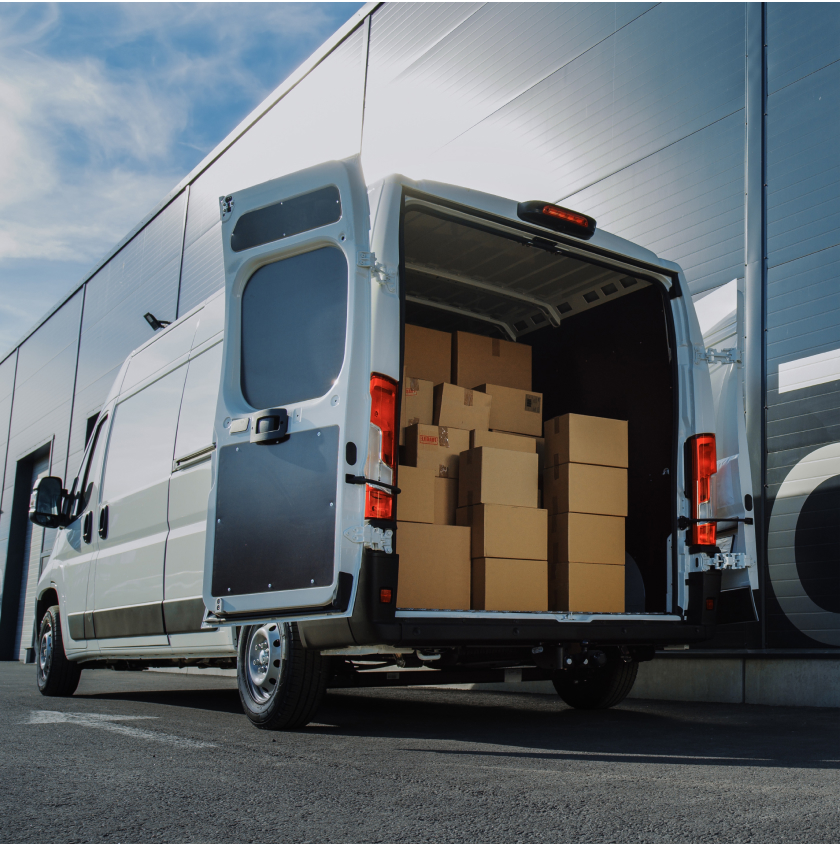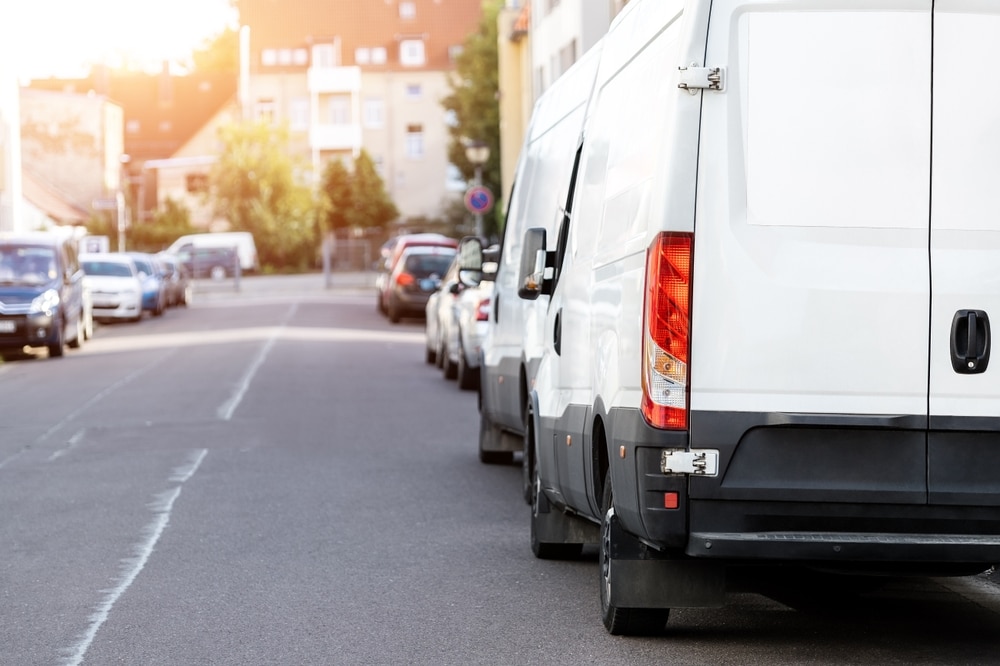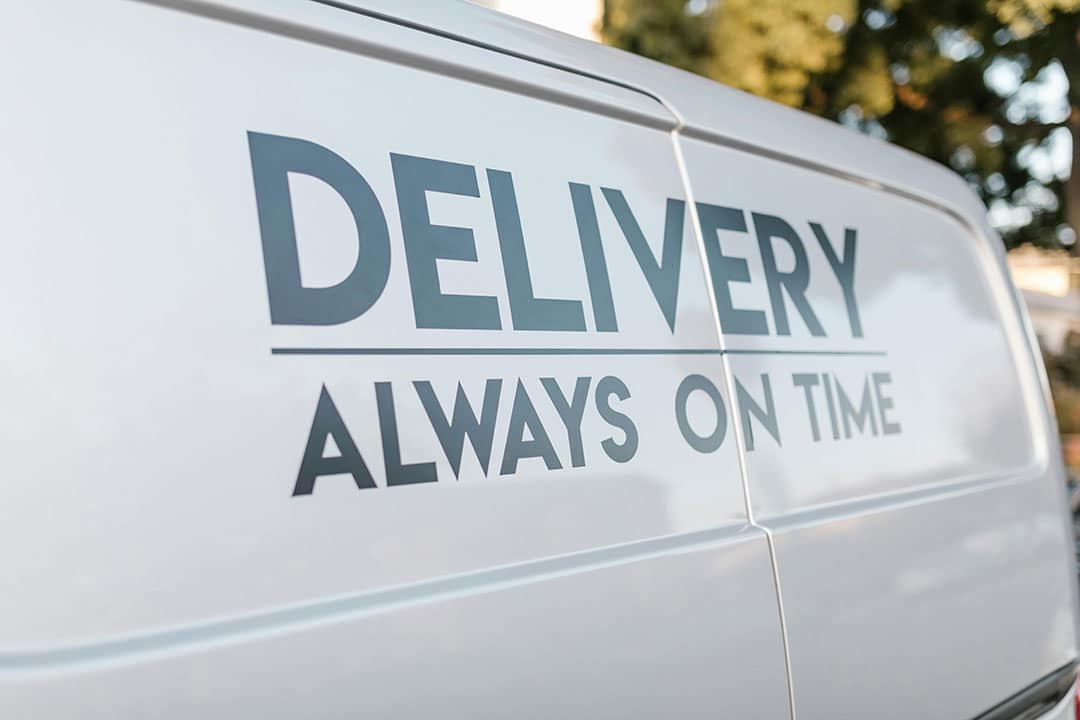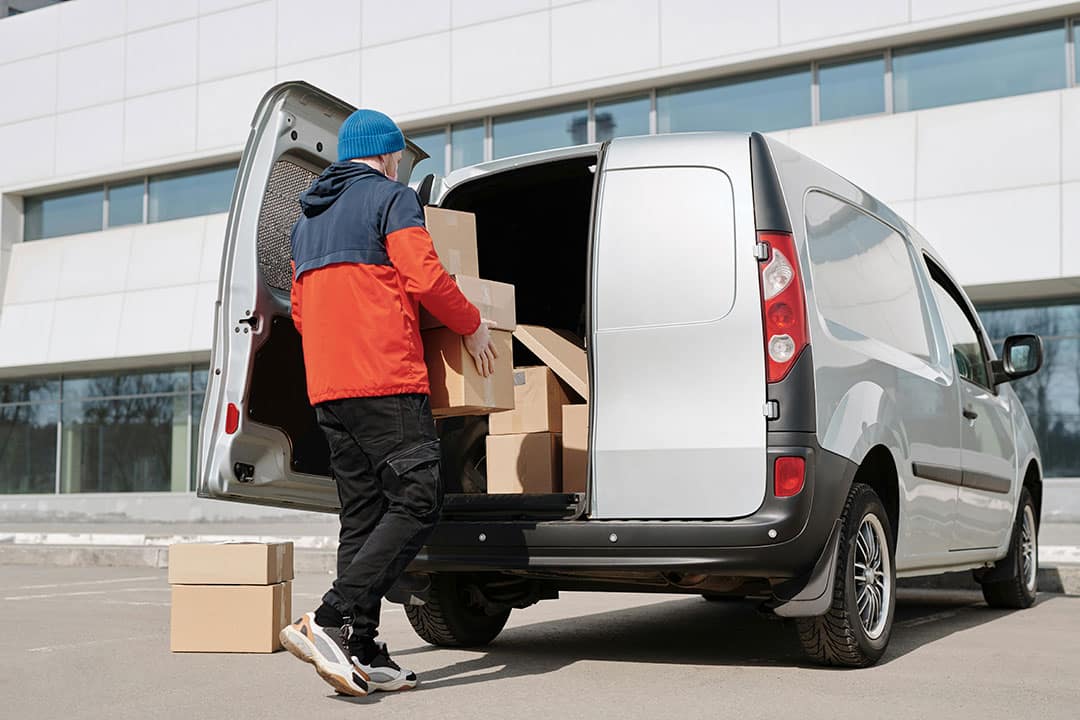
Courier Insurance
Compare Courier Insurance Quotes
- Complete one short form
- Quickly compare quotes
- Find a great deal today

Compare courier insurance policies from leading insurers, including;
Why Compare Courier Insurance Quotes at SimplyQuote.co.uk
Searching for an affordable courier insurance quote is often a daunting and time-consuming task. And with so many courier insurance providers on the market, we bet you’re feeling pretty overwhelmed.
Luckily, SimplyQuote is here to help you find courier insurance quotes that align with your business needs, preferences, and budget.
The online comparison tool, provided through SimplyQuote’s partnership with Quotezone, is 100% free and allows you to compare a range of courier insurance quotes from top UK insurance providers, helping you find the right deal.
Whether you’re buying courier insurance for the first time or looking to switch from your current insurer, try SimplyQuote.co.uk today!

What Is Courier Van Insurance?
Courier van insurance in the UK is a type of specialist commercial van insurance that covers individuals or businesses involved in delivering goods to multiple drop-off points on behalf of clients. It is also referred to as carriage of goods for hire or reward insurance.
It typically includes cover for goods in transit (the items being transported) against loss, damage, or theft.
It is a legal requirement if you are transporting goods that don’t belong to you or can’t be sold by you for a fee.
This insurance protects against potential risks such as damage to goods, vehicle accidents, and third-party liabilities. Given the nature of courier work, where timely and safe deliveries are crucial, having courier insurance ensures peace of mind for both the courier and their clients.
What’s the difference between courier and haulage insurance?
- Courier insurance, or more specifically courier van insurance, is an insurance cover that protects delivery drivers who do multiple deliveries per day – much like Amazon.
- Haulage insurance protects delivery drivers who do one or two deliveries per day. This is usually aimed at larger loads for longer journeys – think of road freight drivers.
What’s the difference between courier insurance and goods in transit insurance?
- As mentioned, courier insurance encompasses different insurance covers (e.g. liability insurance) you need as an individual or commercial courier.
- Goods in transit insurance offers protection for the goods you are transporting while working as a courier. Additionally, goods in transit insurance will cover you for:
- Theft while in transit – if you’re robbed during deliveries.
- Damage caused by accidents during transit – if you’re involved in an accident.
- Loss during transit – if delivery goods go missing while on the job (without any logical explanation).
- Damage caused during transit – if goods are damaged before they are delivered.
Who Can Get Courier Van Insurance?
Courier van insurance is designed for individuals and businesses involved in the transportation of goods, packages, or documents.
However, there are specific criteria you (and/or your drivers) need to meet:
- Age requirement: Applicants should be aged between 25 and 75.
- Driving license: They must hold a full UK driving license.
- Residency: Applicants should be permanent UK residents.
Given these criteria, here’s who can typically obtain courier van insurance:
- Individual couriers: Freelancers or self-employed individuals who deliver items using their own vehicles.
- Courier companies: Businesses, whether small or large, that operate a fleet of vehicles to transport goods – think DHL, FedEx, and Royal Mail.
- Rideshare drivers: Those who use platforms like Uber or Deliveroo to deliver goods, whether it’s food, parcels, or other items.
- E-commerce businesses: Online retailers that handle their own deliveries, especially if they transport high-value or fragile items.
- Food delivery services: From local takeaways to larger food delivery platforms, anyone delivering food to customers can benefit from courier insurance.
- New start-ups: Emerging businesses in the delivery sector looking to protect their operations and assets.
It’s essential to note that while many can apply for courier insurance, premiums might vary based on factors like driving history, the type of goods transported, and the specific requirements of the insurance provider.
Get courier insurance that aligns with your business needs and budget at SimplyQuote.co.uk today!
What Are The Levels Of Cover With Courier Van Insurance?
Courier van insurance consists of numerous types of cover in the UK and can be tailored to meet the unique needs of those transporting goods and packages.
There are three main levels of cover for courier insurance:
| Level of Cover | Description | Covers Damage to Third-Party Property | Covers Fire and Theft of Own Vehicle | Covers Own Vehicle Repair | Additional Benefits |
|---|---|---|---|---|---|
| Third-party only (TPO) | The bare minimum required by law. | Yes | No | No | None |
| Third-party, fire and theft (TPFT) | Covers third-party liabilities and adds protection against fire and theft of the courier vehicles. | Yes | Yes | No | None |
| Comprehensive Cover | The highest level of cover, including third-party, fire, theft, and repair of own vehicle regardless of fault. | Yes | Yes | Yes | Repair/replacement of windscreens Personal injury cover (up to £5,000) Medical expenses (up to £250) Personal belongings cover (up to £250) Cover for using incorrect fuel Key replacement (up to £500) |
What courier insurance is best for my business?
The best courier van insurance is more than just finding a cheap rate as it needs to align with your business operations and preferences. As a standard (and a legal requirement) you need to invest in:
- Third-party cover
- Employers liability insurance
This protects you against any claims (and legal expenses) made by your courier drivers and other third parties who may become injured or harmed by one of your courier vehicles. Opt for additional extras like goods in transit cover, windscreen cover, theft cover, or European cover to meet the specific needs of business operations.
Does Courier Van Insurance Come With Exclusions?
Exclusions – the items you won’t be fully compensated for – vary between insurance providers. As a general rule, here’s a list of commonly excluded goods:
- Antiques, artworks
- Jewellery
- Cigars, cigarettes
- Furs, skins, hides
- Hazardous or restricted goods
- Livestock, plants
- Precious metals, stones, gems
- Unprotected or unpackaged goods
- Wines, spirits, beers
Before making your final decision, it’s best to ask about what is and isn’t covered by your chosen courier insurance provider.
Looking for courier insurance? Get your quote today!
Get Quotes
What Additional Add-ons Are Available?
There are many extras you can add to your courier insurance policy, ranging from hire and reward insurance to trailer cover.
Let’s look at a few options:
Liability Insurance
Compulsory for UK business owners, with two main types: – Public liability: Protects against third-party injury or property damage claims. – Employer’s liability: Covers claims by staff for work-related injuries or illnesses.
Goods in Transit Insurance
Protects items being transported against damage, theft, or loss.
Hire and Reward Insurance
Essential for vehicles used for commercial deliveries or transporting goods for a fee. It covers transporting other people’s property.
Personal Accident Cover
Provides financial support for medical expenses or loss of income due to work-related injuries.
Courier Fleet Insurance
For businesses operating multiple vehicles, courier fleet insurance allows cover under a single policy rather than insuring each vehicle individually.
Motorcycle Courier Insurance
Specialised insurance for couriers using motorcycles as their main delivery transport.
EU/International Insurance
For couriers transporting goods across UK borders, covering international haulage.
Breakdown Cover
Extra cover for unexpected vehicle breakdowns to minimise time and hassle.
Trailer cover
Covers loss, damage, or theft of trailers used in delivery operations, which is not usually included in standard van insurance.
Windshield Cover
Covers the cost of repairing or replacing a damaged windscreen.
No-claims Bonus Protection
Reduces insurance costs, varying by provider and the number of vehicles insured.
Courtesy Van/Car Cover
Ensures business continuity by providing a replacement vehicle during repairs.
What Are The Benefits Of Courier Insurance Cover
Courier insurance offers many benefits for individuals and businesses in the UK, here’s why:
Protection against risks
Courier insurance provides cover against any risks you may face when picking up and transporting goods, such as loss, damage, or theft.
Legal compliance
Third-party-only cover is a legal requirement to transport and deliver goods in the UK. Having a courier insurance policy ensures you meet the legal requirements to operate as a courier in the United Kingdom.
Flexibility
Different levels of courier insurance, ranging from third-party only to comprehensive, allow you to choose the level of protection that suits your specific needs and budget.
Peace of mind
A comprehensive insurance policy gives you peace of mind, knowing you’re financially (and legally) protected during your day-to-day delivery operations.
How Much Does Courier Insurance Cost?
Courier van insurance starts from as little as £86 per month for basic cover and range between £1,450 and £2,150 for comprehensive plans.
However, the final price tags vary between insurance providers and are based on several factors, such as:
- Where you live
- The number and type of vehicles you drive
- Your driving history
- Age of the driver(s)
- The average distances and locations covered

What Is The Average Cost Of Courier Insurance in the UK
As a visual representative, we’ve gathered average courier van insurance prices from three UK insurance providers:
*Updated March 2024. Quotes are based on a 30-year-old London driver, driving a five-year-old Ford Transit van.
Note: Some insurers may not offer third-party-only insurance, and a comprehensive courier insurance plan may be their minimum requirement.
| Insurance Provider | Third-party-only (TPO) | Third-party, Fire and Theft (TPFT) | Comprehensive |
|---|---|---|---|
| Zego | £1,450 | £1,716 | £1,944 |
| Quote Detective | £2,172 | £2,172 | £2,372 |
| Principal Insurance | N/A | £1,847 | £1,759 |

With the surge in online shopping, courier work has become a vital part of the UK’s economy, yet many drivers may not realise the risks of inadequate insurance. A single accident without the right cover could result in costly liabilities, putting their livelihood on the line. It’s essential for drivers to secure proper protection to stay safe on the road and financially secure.

Chris Richards , Founder of SimplyQuote
How Can I Save Money On My Courier Insurance Policy?
There are many ways to save money on your courier van insurance policy.
Here’s a list of tried and tested tips:
Shop around
Get quotes from multiple insurance providers. This allows you to compare prices and cover options to find the best deal suited to your courier business.
Vehicle choice
Choose a vehicle that’s cheaper to insure. Typically, smaller vehicles with less powerful engines attract lower premiums.
Opt for telematics technology
Some insurance providers require a “black box” in delivery vehicles as a way to track and monitor how your courier drivers drive. They use this sophisticated data to price your insurance policies, sometimes resulting in lower premiums.
Pay annually
If you can afford it, paying for your insurance annually rather than monthly can result in savings, as you’ll skip the monthly interest rates.
No-claims bonus
Maintain a clean driving record. Insurers often offer discounts to drivers who haven’t made any claims over a certain period.
Security measures
Installing security devices like alarms, immobilisers, or trackers can reduce the risk of theft, leading to lower insurance costs.
Specialised brokers
Consider using brokers who specialise in courier insurance. They might have access to exclusive deals or discounts.
Increase voluntary excess
Opting for a higher voluntary excess can reduce your premium. However, ensure you can afford the excess in the event of a claim.
Limit mileage
If possible, limit the number of miles you drive. Some insurers offer discounts for lower annual mileage.
Regularly review
As mentioned, courier business insurance evolves over time. Regularly review your policy to ensure you’re not paying for unnecessary coverage.
Remember, while it’s essential to find affordable courier van insurance, it’s equally crucial to ensure you have the right level of cover to protect against potential risks.
How To Compare Courier Van Insurance Quotes?
There’s a lot that goes into comparing courier van insurance quotes and you shouldn’t make a hasty decision.
What to consider when comparing insurance quotes for my courier business?
- Cover details – are you looking for a basic cover such as TPO? Or do you need a more comprehensive cover, especially if your drivers travel across the UK border?
- Consider your non-negotiables. Do your vehicles frequently break down, making breakdown cover plans a necessity? Do you deliver multiple daily deliveries or focus on singular, larger loads?
- Weigh up cost vs coverage. Don’t sacrifice crucial coverage for cheaper prices.
- Understand the terms of your courier van insurance from employers’ liability insurance, transit cover, excess amounts and how to make a claim.
- Opt for reliable and reputable insurance providers. The public perception is easy to gauge when using online review platforms like Trustindex and Google Reviews.

How Do I Get Courier Van Insurance Quotes With SimplyQuote?
Getting courier van insurance quotes at SimplyQuote.co.uk is a straightforward process.
Here’s a step-by-step guide:
Assess your needs
Determine the type of goods you’ll be transporting, the value of your van, and the distances you’ll be covering. This will help you decide the level of cover you need.
Gather necessary information
Before getting a quote, have the following details on hand:
- Personal details – name, address, date of birth
- Driving history – any claims, convictions, or penalties
- Van details – make, model, registration number, value
- Estimated annual mileage
Consider optional extras
Decide if you need additional coverages like a windscreen or breakdown cover.
Check policy details
Before finalising, read the policy terms and conditions. Ensure it covers all your requirements and check for any exclusions.
What happens next?
- Finalise and pay: Once you’ve chosen a policy, you can usually purchase it online or over the phone. You’ll have the option to pay annually or in monthly instalments.
- Receive documentation: After purchasing, the insurer will provide your policy documents. These can be sent via post or email. Ensure you keep them in a safe place and have a copy in your courier vehicle.
- Regularly review: As your circumstances or business needs change, it’s essential to review your policy annually. This ensures you always have the most suitable cover and can take advantage of potential savings.
Remember, while price is a significant factor, it’s crucial to ensure you have enough cover to protect your business against all potential risks associated with courier work.
What do I need to get a quote?
- Complete the online questionnaire, provide a few basic details such as your location and vehicle type(s).
- Choose the level of cover you want.
- Sit back and relax while a list of courier insurance quotes from top UK insurance providers is complied!
Looking for self-employed courier insurance? Get your quote today!
Get QuotesFrequently Asked Questions
Couriers often transport valuable goods, making them more susceptible to theft, damage, or loss. Insuring goods in transit adds to the overall cost of courier insurance.
Additionally, factors such as your previous claims history, driving violations, type of vehicle used, and age and experience of your driver(s) impact insurance rates. Statistically, drivers under the age of 25 are high risk.
Apart from mandatory covers such as public and employee liability insurance, a comprehensive policy is the best to go for. This protects you against third-party claims and covers the cost of repairing your vehicle(s) in the event of accidents, theft, or damage.
Generally, you can use any type of vehicle for your courier business (and have it insured with courier insurance) but most delivery businesses opt for small or mid-sized vans up to 3.5 tonnes.
Yes, you can add extra drivers to your courier van insurance policy, but it’s advised to confirm this with your chosen insurance provider.
Usually, you can insure up to five courier vehicles under a single policy. If your delivery business has more than 5+ vehicles, you’ll likely be better off opting for fleet courier insurance.
Courier car insurance specifically covers vehicles used for courier work – usually a driver’s personal car (e.g. Uber). It protects against accidents, theft, and damage to the vehicle itself.
On the other hand, courier cover includes public liability, employer’s liability, and goods in transit cover, focusing on safeguarding the courier firm, the transported goods and liabilities associated with courier operations.
Courier Insurance Guides









